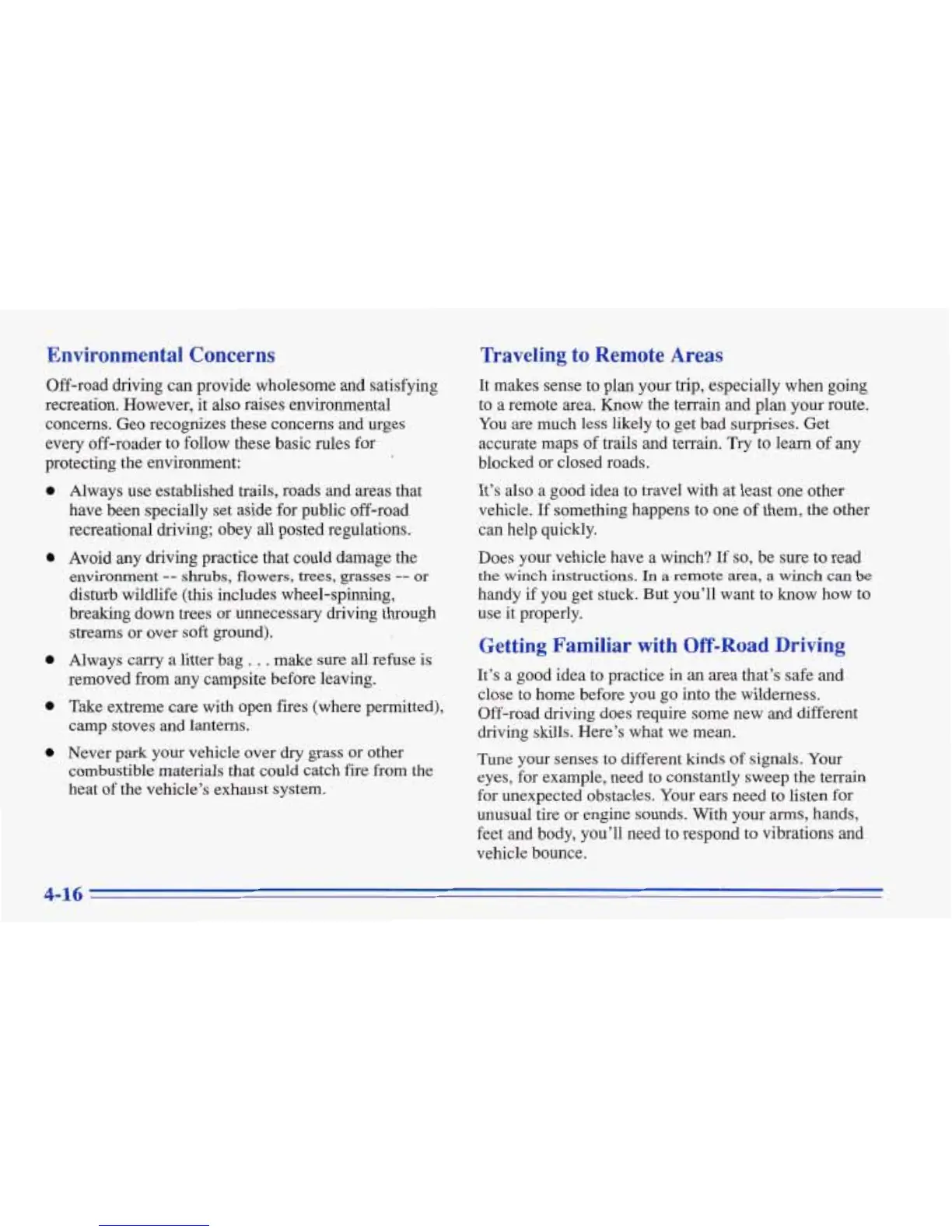Environmental Concerns
Off-road driving can provide wholesome and satisfying
recreation. However, it also raises environmental
concerns. Geo recognizes these concerns and urges
every off-roader to follow these basic rules for
protecting the environment:
0
0
0
0
0
Always use established trails, roads and areas that
have been specially set aside for public off-road
recreational driving; obey all posted regulations.
Avoid any driving practice that could damage the
environment
--
shrubs,
flowers, trees, grasses
--
or
disturb wildlife (this includes wheel-spinning,
breaking down trees or unnecessary driving through
streams or over soft ground).
Always carry a litter bag
.
.
. make sure all refuse is
removed from any campsite before leaving.
Take extreme care with open fires (where permitted),
camp stoves and lanterns.
Never park your vehicle over
dry
grass or other
combustible materials that could catch fire from
the
heat of the vehicle’s exhaust system.
Traveling
to
Remote Areas
It
makes sense to plan your trip, especially when going
to a remote area. Know the terrain and plan your route.
You
are much less likely to get bad surprises. Get
accurate maps
of
trails and terrain.
Try
to learn of any
blocked
or
closed roads.
It’s also
a good idea
to
travel with at least one other
vehicle. If something happens to one
of them, the other
can help quickly.
Does your vehicle have a winch?
If
so,
be sure to read
the winch instructions.
In
a remote
area,
a
winch
can
be
handy
if
you
get stuck. But you’ll want to know how to
use it properly.
Getting
Familiar with
Off-Road
Driving
It’s a good idea to practice in an
area
that’s safe and
close to home before you
go
into the wilderness.
Off-road driving does require some new and different
driving skills.
Here’s
what we mean.
Tune your senses
to
different
kinds
of
signals. Your
eyes, for example, need to constantly sweep the terrain
for unexpected obstacles.
Your
ears need
to
listen for
unusual tire
or
engine sounds. With your
arms,
hands,
feet and body, you’ll need
to
respond to vibrations and
vehicle bounce.
